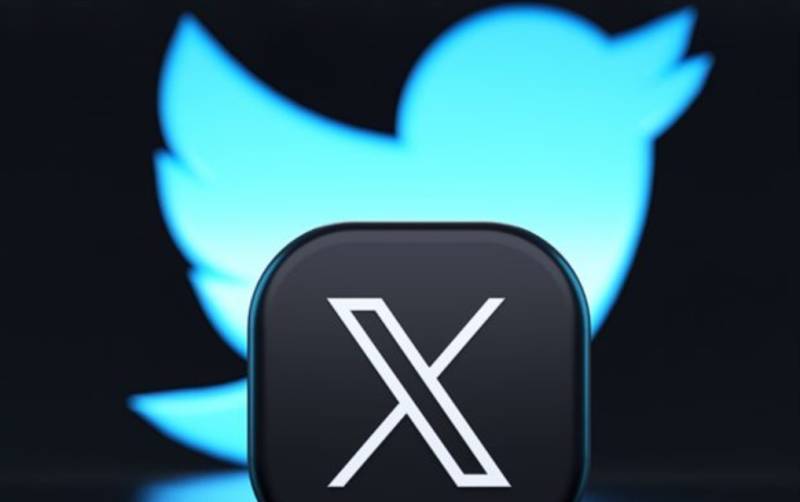By Staff Reporter
KARACHI: More than a week after a senior official admitted to rigging the national election, Pakistanis are still struggling to access X, a popular social media platform that has become a vital outlet for dissent and criticism of the government.
The platform, formerly known as Twitter, was blocked by the authorities on February 17, shortly after Liaqat Ali Chattha, the commissioner of the Rawalpindi region, confessed to orchestrating widespread vote manipulation in favor of the former prime minister Nawaz Sharif’s pro-military Pakistan Muslim League-Nawaz party in the Feb. 8 poll.
Chattha later retracted his statement, but the damage was done.
Since then, X has been available only sporadically, depending on the internet service provider and the use of virtual private networks, or VPNs, that can bypass censorship. The disruption has affected millions of users who rely on the platform for news, information, and expression.
Digital rights groups have condemned the shutdown as a blatant violation of free speech and an attempt to silence dissenting voices after an election marred by allegations of fraud and irregularities.
“Pakistan’s directed use of network shutdowns and restrictions to overtly target political parties and the reporting of election irregularities is unprecedented,” said Alp Toker, the director of NetBlocks, a watchdog that tracks internet disruptions around the world.
Bytes for All, a Pakistani web monitor, in a report said the disruption “restricts citizens’ ability to engage in online discourse, share information, and express dissenting opinions”.
“Protesting political parties have actively been using X for freedom of expression, access to information, to assemble online and for other associated rights.”
NetBlocks recorded the seventh day of service suspension on Saturday. The platform was accessible intermittently during the week but mostly remained offline.
According to Surfshark, a Lithuania-based internet shutdown tracker, Pakistan’s nearly 128 million internet users have experienced service interruptions five times since the beginning of the year, compared with four times in 2023 and three times in 2022.
“Pakistan’s internet censorship efforts have been alarmingly increasing, and 2024 may be a record year for the country regarding internet restrictions,” said Lina Survila, a spokeswoman for Surfshark, in a statement.
Pakistan has a history of imposing internet restrictions, especially during times of political turmoil or social unrest.
Two of this year’s five restrictions, targeting several major social media platforms like YouTube, X, Facebook, and Instagram, came in January, when the party of the jailed former prime minister, Imran Khan, launched online campaigns to challenge the government’s crackdown on its leaders and supporters.
The other three restrictions were imposed as Pakistan held its general election on Feb. 8, which was widely seen as flawed and unfair. The authorities shut down mobile internet services across the country on the day of the vote and for several hours afterward, citing security reasons.
The election results sparked protests and complaints from most of the political parties, except for the ruling Pakistan Muslim League-Nawaz, or PML-N, which secured a plurality of seats in the parliament but fell short of a majority.
The Pakistan Tehreek-e-Insaf, led by Khan, claimed that its mandate was stolen by the PM-N and military establishment, who allegedly manipulated the electoral process and the vote count.
Khan’s rivals, including the former Premier Shehbaz Sharif, are trying to form a coalition government. Sharif replaced Khan after his ouster in a no-confidence vote in parliament in 2022. Khan has since then been convicted of offenses in what his supporters call politically motivated moves to keep him out of office.
Freedom House, a global civil liberties watchdog, ranks Pakistan as “not free” in terms of internet freedom, citing frequent shutdowns, censorship, surveillance, and harassment of online activists and journalists.
While X has only a few million users in Pakistan, compared with more than 40 million on Facebook, the platform is seen as more influential and politically active, attracting journalists, activists, politicians, and celebrities.
“The power to censor or control free expression always lay with governments until about 10 years ago,” said Saroop Ejaz, a senior counsel in the Asia division at Human Rights Watch. “I think we are looking at an amplified version of that [public debate]. Twitter [now X] is an amplified version of that … it seems those in power are troubled by this.”
Many users have resorted to VPNs to access X and other blocked websites, but the authorities have also tried to crack down on these tools, making them harder to use or illegal.
Expressing concern about the restrictions on freedom of expression, Mathew Miller, a spokesman for the U.S. State Department, called on Pakistan last week to restore access to any restricted social media platforms and to ensure that its citizens can communicate freely online.
The United States, the United Kingdom, and the United Nations have also expressed concern about the credibility of the election and urged Pakistan to respect the rights of its citizens.
“We continue to call on Pakistan to respect freedom of expression and restore access to a social media that has been restricted including Twitter, now known as X,” Miller said. “We have and will continue to emphasize the importance of respecting these fundamental freedoms during our engagements with Pakistani officials.”
The provincial court in Pakistan’s Sindh province also ordered the government to restore access to X, during a hearing on the Election Day internet outage.
Copyright © 2021 Independent Pakistan | All rights reserved




